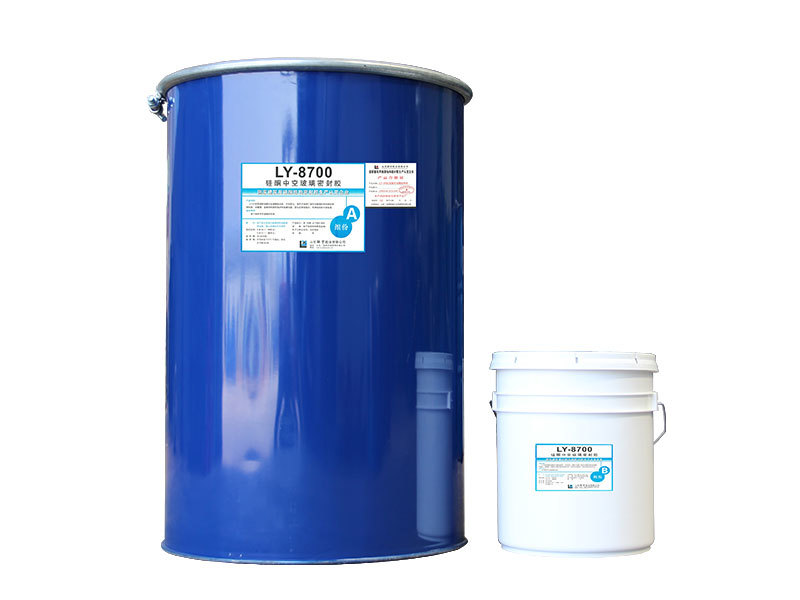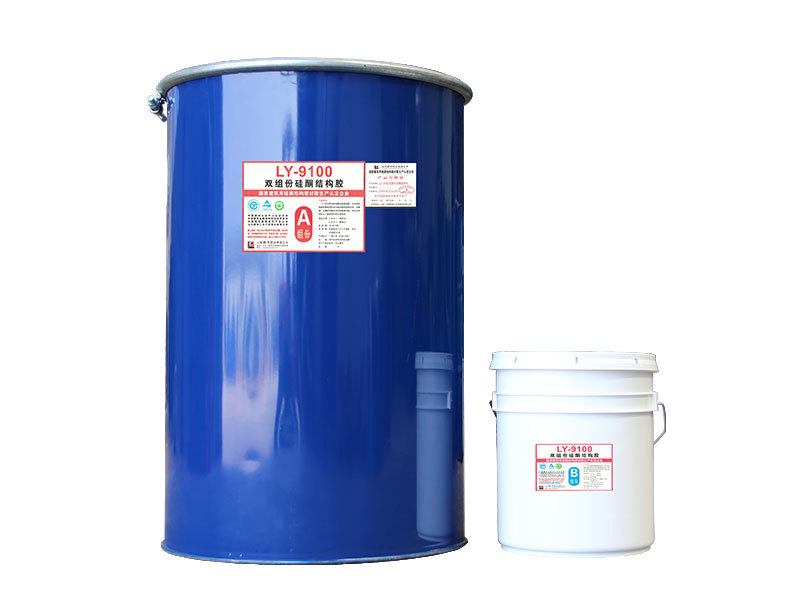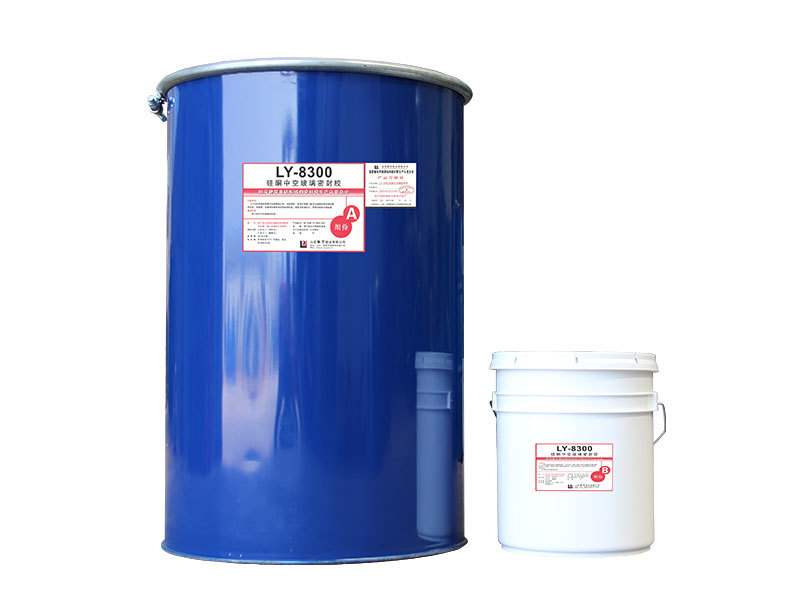Why Choose Neutral Structural Silicone Sealant for Your Next Project?
Upload Time:
2025-03-01
Why Choose Neutral Structural Silicone Sealant for Your Next Project? Table of Contents Introduction to Neutral Structural Silicone Sealant What is Neutral Structural Silicone Sealant? Advantages of Using Neutral Silicone Sealant Applications of Neutral Structural Silicone Sealant How to Properly Apply Neutral Silicone Sealant Performance Comparison with Other Sealants Common Issues

Why Choose Neutral Structural Silicone Sealant for Your Next Project?
Table of Contents
- Introduction to Neutral Structural Silicone Sealant
- What is Neutral Structural Silicone Sealant?
- Advantages of Using Neutral Silicone Sealant
- Applications of Neutral Structural Silicone Sealant
- How to Properly Apply Neutral Silicone Sealant
- Performance Comparison with Other Sealants
- Common Issues and Solutions
- Sustainability and Environmental Impact
- Frequently Asked Questions
- Conclusion
Introduction to Neutral Structural Silicone Sealant
In the world of construction and design, choosing the right adhesive can significantly impact the durability and aesthetic appeal of a project. One of the standout options available today is **Neutral Structural Silicone Sealant**. This versatile sealant is widely recognized for its unique properties that enhance performance in various applications, from glazing to general sealing tasks. Its ability to form strong, flexible bonds makes it indispensable in professional and DIY projects alike.
What is Neutral Structural Silicone Sealant?
Neutral Structural Silicone Sealant is a silicone-based adhesive with a neutral cure formulation. Unlike traditional silicone sealants that might produce acetic acid during the curing process, neutral silicone sealants do not release corrosive by-products. This characteristic makes them particularly suitable for use on sensitive materials like metals, glass, and painted surfaces.
This type of sealant is engineered to withstand extreme weather conditions, UV exposure, and temperature fluctuations, ensuring longevity and reliability. It typically comes in a range of colors and finishes, allowing it to blend seamlessly with various substrates.
Advantages of Using Neutral Silicone Sealant
There are numerous reasons why Neutral Structural Silicone Sealant is a preferred choice for many professionals. Some of the key benefits include:
1. Excellent Adhesion Properties
Neutral silicone sealants exhibit outstanding adhesion to a variety of substrates including glass, metal, masonry, and plastics. This versatility simplifies the bonding process across different materials, minimizing the need for multiple types of adhesives.
2. Flexibility and Elasticity
The inherent flexibility of Neutral Structural Silicone Sealant allows it to accommodate movement and thermal expansion in materials. This elasticity is crucial for maintaining a strong bond in dynamic environments where shifts may occur.
3. Weather Resistance
Neutral silicone sealants are highly resistant to weather-related wear and tear. Their ability to resist moisture, UV radiation, and extreme temperatures ensures that they maintain their integrity over time.
4. Non-Corrosive Properties
The neutral cure process means that there are no corrosive by-products, making this sealant ideal for use on delicate materials. This non-corrosive nature extends the lifespan of both the sealant and the substrates it bonds.
5. Easy Application
Neutral Structural Silicone Sealants are user-friendly and can be applied using standard caulking tools. This ease of application makes them suitable for both professional contractors and DIY enthusiasts.
Applications of Neutral Structural Silicone Sealant
Neutral Structural Silicone Sealant is incredibly versatile, making it suitable for a wide range of applications:
1. Glazing Applications
This sealant is widely used in the glazing industry for sealing glass panels in windows and facades. Its excellent adhesion and weather resistance make it perfect for exterior applications.
2. Construction and Building
In construction, Neutral Structural Silicone Sealant is utilized to seal joints and gaps in various structures, ensuring a watertight and airtight environment.
3. Automotive Industry
In automotive manufacturing, this sealant is used for bonding glass components and providing insulation against moisture and air leaks.
4. General Purpose Sealing
From kitchens to bathrooms, Neutral Structural Silicone Sealant can be used for general sealing tasks. It is ideal for application around sinks, bathtubs, and countertops.
How to Properly Apply Neutral Silicone Sealant
Proper application is key to maximizing the performance of Neutral Structural Silicone Sealant. Here’s a straightforward guide to ensure a successful application:
1. Surface Preparation
Clean the surfaces thoroughly to remove any dust, grease, or old sealant. This step is crucial for ensuring strong adhesion.
2. Choose the Right Tools
Use a caulk gun for easy application and a smoothing tool for finishing the bead of sealant.
3. Apply the Sealant
Cut the tip of the sealant tube at a 45-degree angle and puncture the inner seal. Apply the sealant with steady pressure, filling the joint completely.
4. Smooth the Sealant
Use a smoothing tool or your finger dipped in soapy water to smooth the sealant bead for a clean finish.
5. Allow to Cure
Let the sealant cure according to the manufacturer’s instructions before exposing it to water or stress.
Performance Comparison with Other Sealants
When it comes to choosing the right sealant, it’s essential to understand how Neutral Structural Silicone Sealant stacks up against other common sealant types:
1. Silicone vs. Polyurethane Sealants
While both types provide excellent adhesion and flexibility, silicone sealants offer superior UV resistance, making them ideal for outdoor applications. Polyurethane may provide better durability in some cases, but it can be more challenging to apply and requires careful surface preparation.
2. Silicone vs. Acrylic Sealants
Acrylic sealants are typically easier to paint over, but they do not offer the same level of flexibility or weather resistance as silicone. For projects requiring a long-lasting seal, silicone is the clear winner.
Common Issues and Solutions
Even with the best products, issues can arise. Below are some common challenges associated with Neutral Structural Silicone Sealant along with their solutions:
1. Sealant Not Adhering Properly
Ensure surfaces are clean and dry before application. If the sealant still fails to adhere, consider using a primer specifically designed for the substrate.
2. Cured Sealant Cracking
This may occur due to excessive movement in the materials. To mitigate this, ensure proper joint design and allow for movement in the installation.
3. Discoloration Over Time
Using a high-quality neutral silicone sealant can prevent discoloration. Always choose products with UV inhibitors for outdoor applications.
Sustainability and Environmental Impact
With growing concerns about environmental sustainability, the choice of materials in construction is more important than ever. Neutral Structural Silicone Sealant is often formulated to be low-VOC (volatile organic compounds), minimizing its impact on indoor air quality and the environment.
Furthermore, many manufacturers are increasingly adopting eco-friendly practices, ensuring that their products are not only effective but also responsible.
Frequently Asked Questions
1. What is the curing time for Neutral Structural Silicone Sealant?
Curing time can vary, but most neutral silicone sealants cure within 24 hours. Full strength is often reached after 7 days.
2. Can Neutral Structural Silicone Sealant be painted?
Most silicone sealants are not paintable. For a paintable option, consider using a silicone-acrylic blend.
3. Is Neutral Structural Silicone Sealant waterproof?
Yes, it forms a waterproof seal once cured, making it ideal for wet areas.
4. Can I use Neutral Structural Silicone Sealant on aquariums?
Yes, as long as the sealant is specifically labeled as safe for aquarium use.
5. How do I remove cured silicone sealant?
Cured silicone sealant can be removed using a razor blade or specialized silicone removers available in hardware stores.
Conclusion
Neutral Structural Silicone Sealant is an essential tool for anyone involved in construction, renovations, or DIY projects. Its outstanding adhesion, flexibility, and weather resistance make it a superior choice for a wide range of applications. By understanding its benefits and proper application techniques, you can ensure your projects not only meet but exceed expectations. Embracing this versatile sealant will undoubtedly lead to more durable and aesthetically pleasing results in your work.
Relevant News



